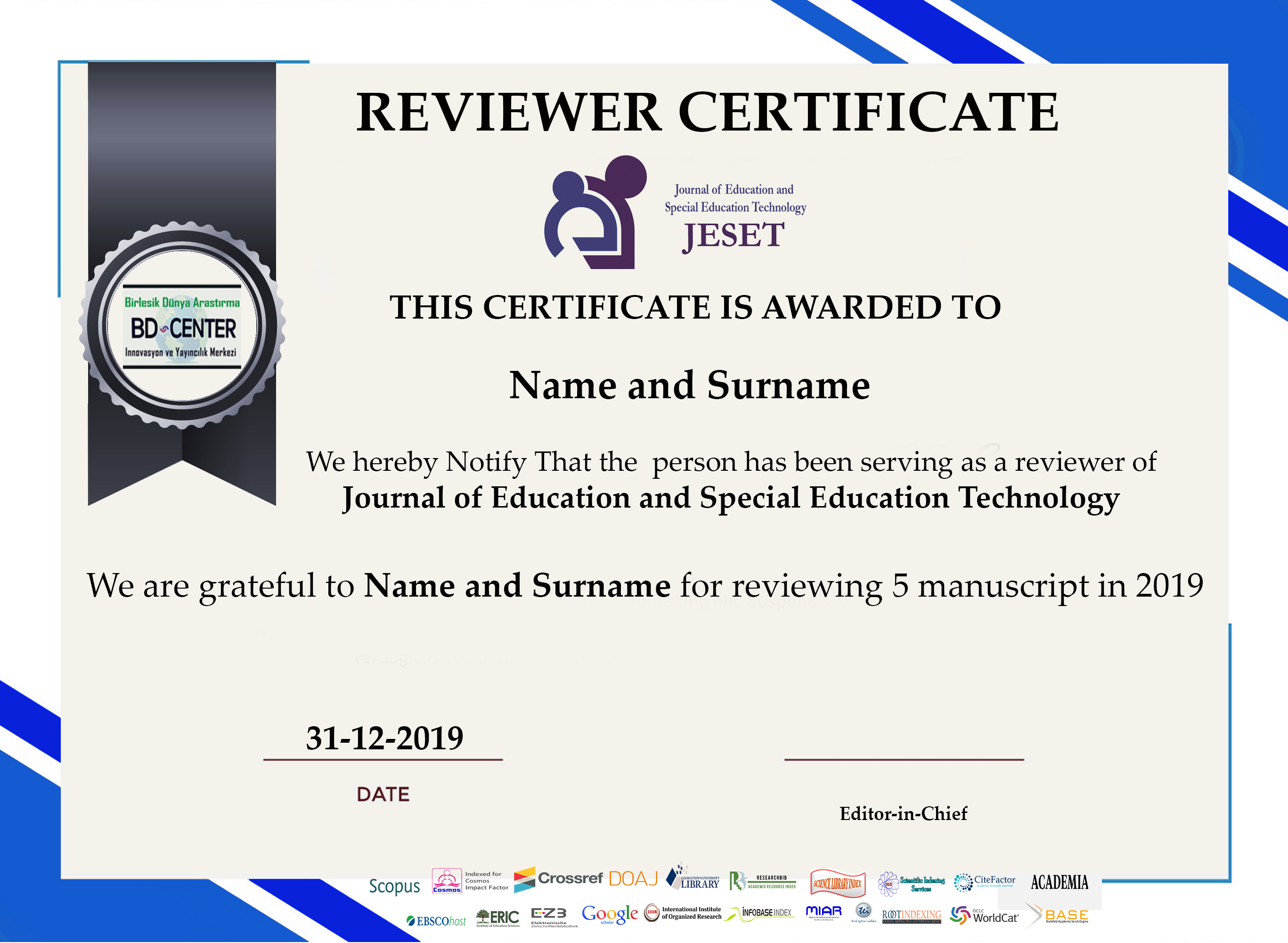Become Reviewer
BECOMING A REVIEWER
How to become a reviewer?
Reviewers play a central role in scholarly publishing. Reviewing is a time-intensive process and requires certain skills in a specific field. Before you decide if you want to become a reviewer, we recommend you to be sure that you would be able to allocate time for the reviewing process. Through taking part in a review process, you would ensure certain standards of the scientific process and help to maintain and increase the quality of the journal. Besides, you would establish relationships with prestigious academicians and researchers.
What is peer review?
JESET relies on the peer review process to ensure the quality and validity of individual articles and the journal that publish them. The JESET are subjected to Double Blind Peer-Review. Both the reviewer and the author are anonymous in Double Blind Review in order to prevent any reviewer bias. Reviewers are required to complete their reviews within 21 days.
Guidance for peer reviewers
Reviewers evaluate article submissions for specific scopes based on the requirements of that journal, predefined criteria, and quality, completeness and accuracy of the article. They provide feedback on the article and the research, suggest improvements and make a recommendation to the editor about whether to accept, reject or request changes to the article.
If you accept to take part in the review process of an article, you must treat the article you receive as a confidential document. This means you are not allowed to share them with anyone.
First read the article and then take a break from it, giving you time to think. Consider the article from your own perspective. You should make sure you know what the journal is looking for and have a copy of any specific reviewing criteria you need to consider.
Your review will help the editor to decide whether or not to publish the article. Giving your overall opinion and general observations of the article is essential. Your comments should be courteous and constructive and should not include any personal remarks or personal details including your name.
During the reviewing process, you should mainly consider the following basic questions:
Is the article important for the related field?
- Will the article contribute to existing knowledge in the related field?
- Does the article make sense and have a clear message?
- Is the research question clearly defined and appropriately answered?
- Does the article have an appropriate and adequate design and method to answer the research question?
- Does the article adequately describe the participants adequately?
- Did the study adhere to the ethical principles and standards?
- Do the results answer the research question in a clear way?
- Are the interpretation and conclusions derived the data presented and discussed in the light of previous evidence?
- Are the references used in the article current and relevant?
- Does the abstract reflect accurately what the paper is about?
- When you make a recommendation, it is worth considering the categories the editor mostly uses for classifying the article:
- Accept without revision
- Revision Required – either major or minor (explain the revision that is required, and indicate to the editor whether or not you would be happy to review the revised article)
- Resubmit for Review Process Again
- Reject (explain the reason in review form)
If you suspect plagiarism, fraud or other ethical issues, share your suspicions with the editor, providing as much detail as possible. Visit Publication Ethic or the COPE Guidelines for more information.
Reviewer Certificate
When you make at least 5 reviews in a year, you will receive the following certificate.

